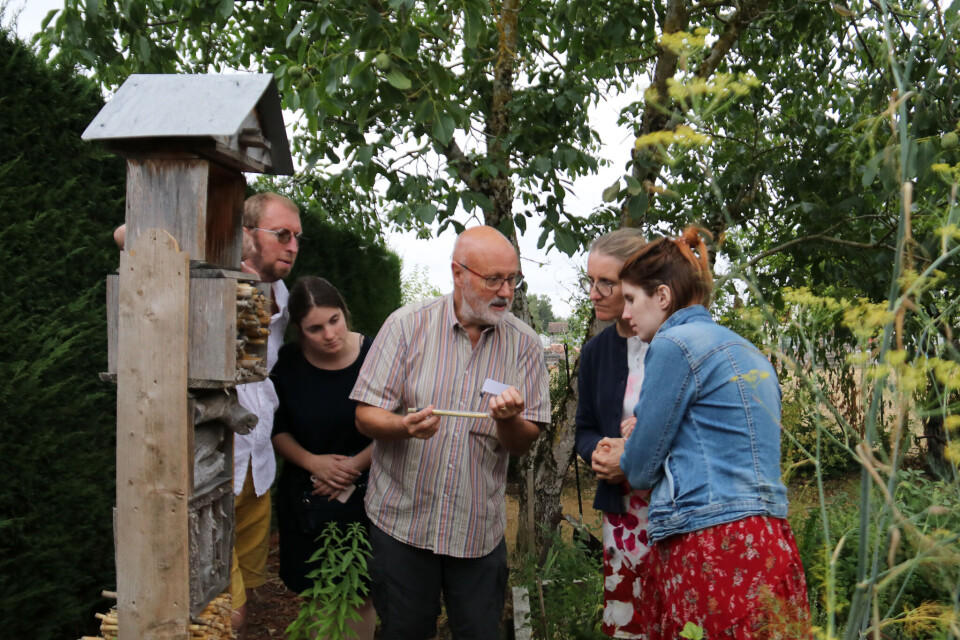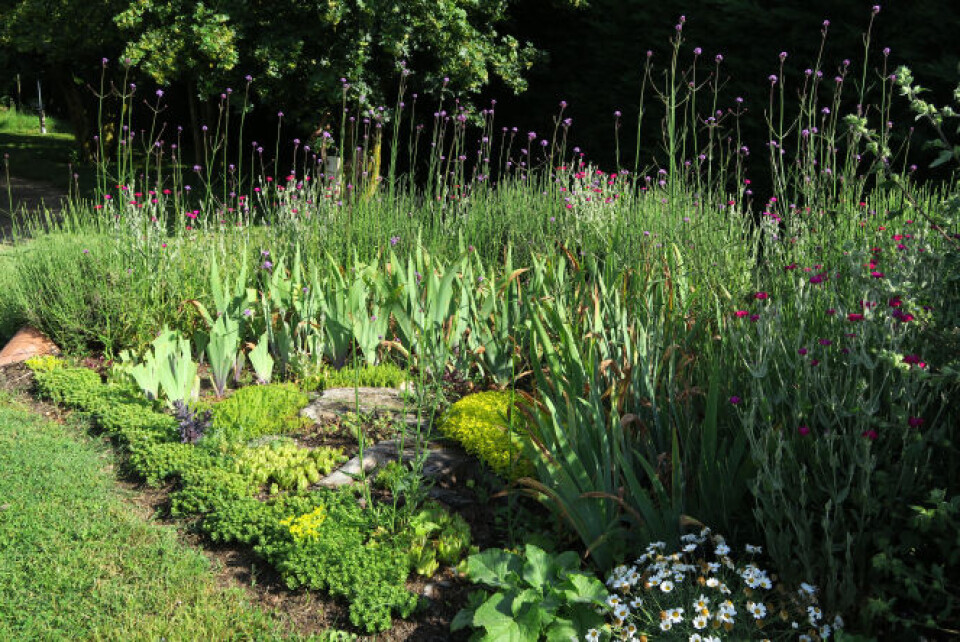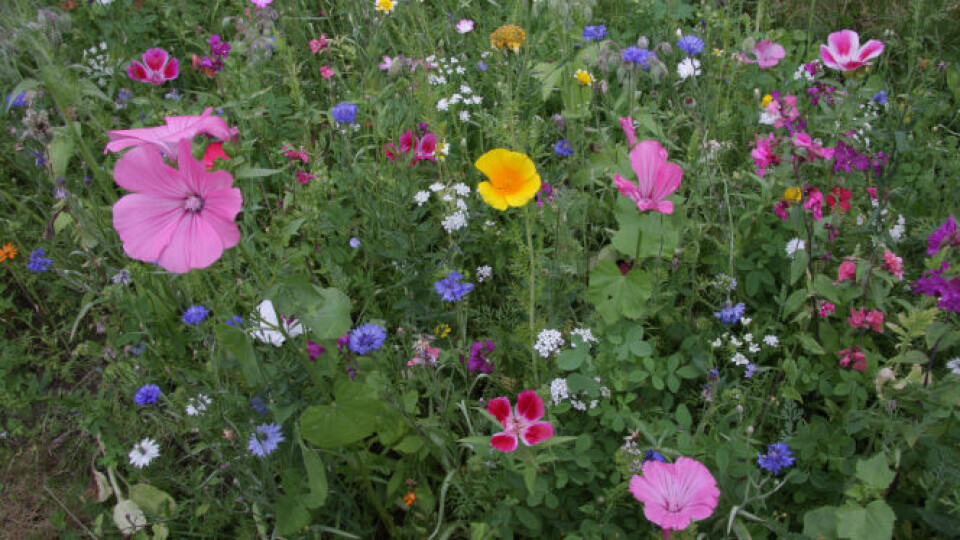-
Gardener's digest: reusing rainwater and April vegetable patch plans
Tips and tricks for your jardin in France, from sunloungers to swimming pool inspiration
-
What you should do to your garden in France in spring
Weeding, pruning, sowing, preparing the lawn…here is how to welcome sunnier days
-
Gardening in France: how to overcome daffodil dilemmas
Expert solutions for daffodil 'blindness' and 'lively' composting techniques to try
Explore the magical gardens of Le Jardin des Plantes Magiques
Intrigued visitors to a garden in Centre-Val de Loire are learning all about plants’ magical properties

Le Jardin des Plantes Magiques at Yzeures-sur-Creuse, Indreet- Loire is a 100% natural garden with a mixture of wild and cultivated flowers and plants, which will be open for the last three days in May for Open Gardens/ Jardins Ouverts and then again at the end of July.
Last year Open Gardens/Jardins Ouverts, decided not to open any gardens, because of the Covid-19 situation. But this year the association which encourages gardeners of all nationalities to open up their gardens, big and small, to the public, to raise funds for charity, is back in action, with health protocols in place.
Dominique and Marie-Odile Birault are thrilled to be able to open this year because they say one of the pleasures of gardening is to share and discuss their love of plants and nature with visitors.
As well as the set opening days they would welcome visits by appointment by telephone on any other day to show people round their garden in aid of the charity. Mr Birault has also produced a board game on the theme of the name of his garden, Jardin des Plantes Magiques he will sell for €10 to raise more funds:
“Over the years we have discovered that 37 of the plants in our garden are ones which over history have been attributed with magical properties. I have researched each one and the information is on the game so that people can learn while playing.

Visitors are always intrigued by the legends behind the plants.” He says there are three categories: “White magic plants are those which can do you good, such as comfrey with healing properties and angelica which chases off devils. The black hellebore or Christmas rose on the other hand, though beautiful and welcome in the winter months has been portrayed as evil, encouraging people to insult others.
Certain plants are prophetic, such as hazelnut, forked branches of which are used as divining rods to find water.
'We have our magic plants growing around the house and it is always fascinating to discover the close links between humans and plants'
The couple bought their house with its 3,000m² garden in 1991. It was already well established with a wonderful collection of trees which are now over fifty years old and so some are very tall. Among them are some rare species including one of their only exotic plants, an Algerian fir, also called Abies Numidica which comes from the Atlas Mountains and is now in danger of dying out. Most of their plants are local, many of them taken from the nearby countryside.
They have fifteen flower beds, full of perennials such as sedum, rudbeckia, echinacea and bergamot with a colour scheme favouring red, white and black. There is also a bed with fifty or so roses.
There are three wild flower zones with several species including mallow, buttercups and cornflowers.
Mr Birault says every year is different and it is wonderful to see plants in their garden that they have not introduced but appear because perhaps the seeds have laid dormant for years or a wild animal or bird has brought them in. If plants from the wild appear the couple do not treat them as a weed, but welcome them into their garden. There is a vegetable and herb garden, fruit trees and a small waterfall and a pond with water lilies as well.
Mr Birault says they propagate nearly all their plants themselves: “During lockdown last year we spent three months in the garden and were able to create new beds without ever having to step foot in a plant shop. When you have perennials you can divide them and you can take seed to produce new plants. Nature is generous. Every year we estimate we produce up to 600 new plants which we like to give away to friends, family and visitors.”
Everything is recycled at Le Jardin des Plantes Magiques
He says nothing is wasted. Everything is recycled: “I re-use all the cuttings from pruning, the vegetation that has died back at the end of the season, and autumn leaves. If you look at forests, the soil has developed over centuries from the fallen leaves.
“In the autumn, I spread leaves from our garden onto the vegetable garden. In the spring I take the two-thirds which have not rotted down and put that into the compost, but the soil has already benefitted from the leaves over the winter.
“The garden is surrounded by a conifer hedge and I leave their trimmings on the ground which stops weeds growing and attracts insects and birds who use them for their nests. We are lucky because we have a big garden so it does not all have to be neat and tidy. On other parts of the garden I mulch with hemp straw, which I can get locally and tends not to have as many weeds in with it as wheat straw.
“Over the years we have developed these techniques and find they make a real difference, encouraging the worms and bacteria to do their job and creating a rich and healthy soil. Every year its organic content increases and this gives another advantage as it retains moisture better and so we need to water less often during the dry summer months.”
The couple have deep roots in farming
Mr Birault says they have always gardened in the most natural way possible. The couple have deep roots in farming. He worked in agriculture until he retired and Mrs Birault grew up on a farm and they have applied the love of the local land to their garden.
“We have always had a good mix of trees and companion planting long before terms like permaculture were introduced. We choose robust varieties which need very little looking after. Sometimes if we are out on a walk we take a young seedling which will grow into a healthy shrub in our garden. We create nesting areas and boxes for both birds and insects and every year we see more and more of them and love to spend time watching them.”

In May the wild meadow flowers will be in bloom, the first roses and dahlias will be flowering, and irises, rudbeckia and echinacea will be out. There will also be an exhibition by artist Martin Looker, originally from Yorkshire, who now lives in the region and works with natural materials.
Mr Birault says he and his wife are looking forward to greeting visitors, with the necessary health measures in place. “If it had not been for Open Gardens/Jardins Ouverts we would never have thought of opening up to visitors, but now that we do, it has become an important part of our gardening life.” Jardin des Plantes Magiques, Yzeuressur- Creuse, Indre-et-Loire
Owners: Dominque and Marie-Odile Birault; Open: May 29, 30, 31 9.30-12.00, 14.00-19.00 Tel. 06 86 71 08 82
Related stories
Gardening in France: Oriental poppies go centre stage in springtime
Jardin des Cinq Sens: Yvoire’s magical lakeside garden
























